SARA BRILL is an associate professor of philosophy and the director of the Classical Studies Program at Fairfield University.
Acknowledgments
I AM INDEBTED TO my parents, Pam and Bob, and brother Rob, for creating an environment in which eccentricities are warmly accepted, supported, and treated as sources of amusement. I would also like to acknowledge my wonderful colleagues in Fairfield University's Philosophy Department for providing a welcoming and friendly environment in which to work; I am grateful to the university for granting me a pre-tenure leave in 20067, during which time I drafted several chapters of this book. Dee Mortensen at Indiana University Press has been a model of professionalism and expertise and a delight to work with.
I have had the great fortune of studying with several scholars who understand the act of thinking to be an expression of joyCharles Solomon, Larry Kimmel, Judith Norman, and especially John Sallisand I am profoundly grateful to those friends and colleagues whose conversation and companionship have shaped these ideas in more ways than I can say. I would like to acknowledge in particular Ryan Drake, whose humor and acumen make all things better, as well as Jocelyn Boryczka, Jill Gordon, Chris Long, Marina McCoy, and Hasana Sharp.
The ideas for this book have been vetted in a number of professional conferences and speaking engagements, and I would like to thank the philosophy faculty and students at Boston College, Colby College, Trinity College, University of Kentucky, and Baylor University, as well as the members of the Ancient Philosophy Society, whose annual conferences create a rich environment for the sharing of ideas and an intellectual home. It has been my great honor to receive the benefit of the time and attention of a number of people who have read and commented upon portions of this manuscript and given invaluable feedback. In addition to those already mentioned, I would like to thank Claudia Baracchi, Emanuela Bianchi, Walter Brogan, Sarah Glenn, Francisco Gonzalez, Benjamin Grazzini, Gary Gurtler, Drew Hyland, Brooke Holmes, Sean Kirkland, Robert Metcalf, Mitchell Miller, Holly Moore, Mark Munn, Michael Naas, Kalliopi Nikolopoulou, Gregory Recco, Eric Sanday, Michael Shaw, Anne-Marie Schulz, Christina Tarnopolsky, Lew Trewlany-Cassity, and Adriel Trott.
Portions of a few of the chapters in this book first appeared as journal articles, and I thank these journals for permission to reprint this scholarship: an early version of (on the Republic) was undertaken while enjoying the hospitality of the Albert Ludwigs Universitt in Freiburg, Germany, made possible by a Fulbright grant and the sponsorship of Dr. Gnter Figal.
Socratic Prothumia
S OCRATES'S DEFENSE OF the calmness with which he confronts his death unfolds within a theological framework with which he has a vital, if also uneasy, relationship. Indeed, he is granted the opportunity of giving this defense because of a delay in his execution due to a religious observation: the citywide observance of a vow to Apollo, involving a ritual mission to Delos in memory of Theseus, prohibits the civic pollution that accompanies executions. Further, Socrates's attempts to give both an account of himself and of the true philosopher are shaped by the need to determine both of these entities stances toward the theology he outlines very early on in the dialogue. With respect to the dialogue's psychology, this theological framework provides a number of the dominant conceptual and linguistic tools through which soul is investigated; consequently it will be necessary to outline this framework in detail. At the same time, Plato's depiction of the uneasiness Socrates feels about certain elements of this theology provides an important orientation toward this framework that neither rejects it nor uncritically appropriates it. Instead, the Phaedo illustrates that for Plato it is incumbent upon the investigator of the soul to make apparent the conceptual and linguistic apparatus through which soul is interrogated. Insofar as theology provides one such lens, this theology must be made explicit and subject to scrutiny, and this is precisely what Plato has Socrates do.
Socrates is drawn into a defense of his confidence in the face of death by the charge that it is irrational not to flee from death, a charge to which Socrates has opened himself by his advice to the sophist and poet Evenus to follow him to death as quickly as possible, advice qualified only by Socrates's concession to the injustice of suicide. Socrates is in the position of giving advice to Evenus because of his peculiar response to the possibility of impiety: having been haunted his entire life by a dream commanding him to practice music, and having interpreted this dream as encouragement to continue philosophy, Socrates decides as the end of his life approaches to take up demotic music as well, in order to test ( ) the meaning of the dream and, in Socrates's words, to acquit myself of any impiety (
) the meaning of the dream and, in Socrates's words, to acquit myself of any impiety ( ) (60e).
) (60e).
The law (61b) prohibiting suicide to which Socrates gestures in qualifying his advice to Evenus is one that Socrates assumes Simmias and Cebes have heard from their Pythagorean teacher Philolaus. In fact, throughout the dialogue Plato plays with the possibility that a cosmology based upon a rational principle also makes demands upon human action and thus entails a certain kind of life. This can be seen in the interest Socrates has in convincing his two mathematically inclined interlocutors that they are part of an intellectual tradition that also involves serious commitments about the nature of the soul and the afterlife, commitments about which they appear to be unaware. Some anticipation of this interest can perhaps be read in Socrates's characterization of his own knowledge of such matters as from hearsay ( [61d]).
[61d]).
Socrates is willing to share this hearsay with his friends, Their conclusion is that removing oneself from the service of the gods would be worthy of punishment ( ) (62c).
) (62c).
Plato's presentation of a music-practicing Socrates who, like the swans also in Apollo's service, has just composed an ode to the god is certainly in keeping with this notion of human piety, but the incredulousness with which Evenus receives word of this practice (60d) provokes the reader to question just how easily Socrates's life fits in with such a model of dutiful service to the gods. As Cebes is quick to note, this conception of human life seems to conflict with Socrates's earlier suggestion that philosophers should be willing and even eager for death. Cebes knows just where to press his friend on this point, using this objection to draw out what he thinks (and assumes Socrates thinks) are the qualities that a philosophical person should possess:
For its not reasonable for the most thoughtful men [ ] not to make a fuss when they leave behind this position of service [
] not to make a fuss when they leave behind this position of service [ ], in which the very best overseers there are, the gods, watch over them. For at least the thoughtful man does not, I suppose, imagine that he'll take better care of himself once he's become free. But a mindless [
], in which the very best overseers there are, the gods, watch over them. For at least the thoughtful man does not, I suppose, imagine that he'll take better care of himself once he's become free. But a mindless [ ] human being would perhaps imagine that one must flee from one's master. He wouldn't reason [
] human being would perhaps imagine that one must flee from one's master. He wouldn't reason [

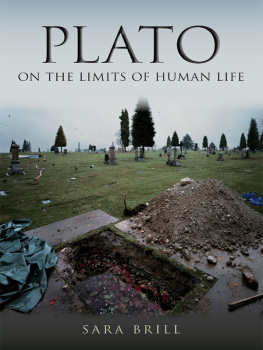
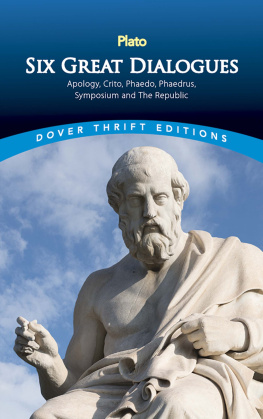

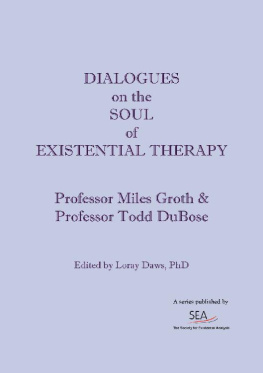
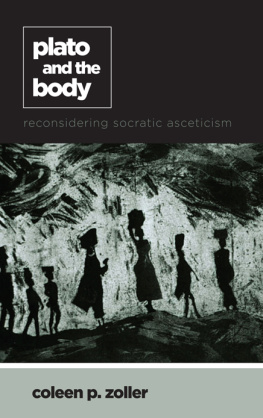



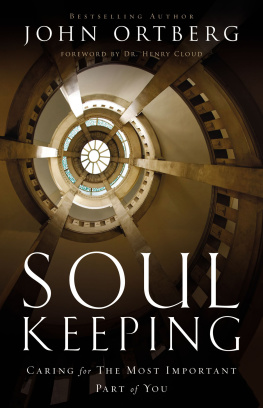

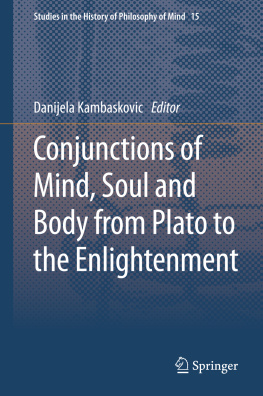

 ) the meaning of the dream and, in Socrates's words, to acquit myself of any impiety (
) the meaning of the dream and, in Socrates's words, to acquit myself of any impiety ( ) (60e).
) (60e). [61d]).
[61d]). ) (62c).
) (62c). ] not to make a fuss when they leave behind this position of service [
] not to make a fuss when they leave behind this position of service [ ], in which the very best overseers there are, the gods, watch over them. For at least the thoughtful man does not, I suppose, imagine that he'll take better care of himself once he's become free. But a mindless [
], in which the very best overseers there are, the gods, watch over them. For at least the thoughtful man does not, I suppose, imagine that he'll take better care of himself once he's become free. But a mindless [ ] human being would perhaps imagine that one must flee from one's master. He wouldn't reason [
] human being would perhaps imagine that one must flee from one's master. He wouldn't reason [